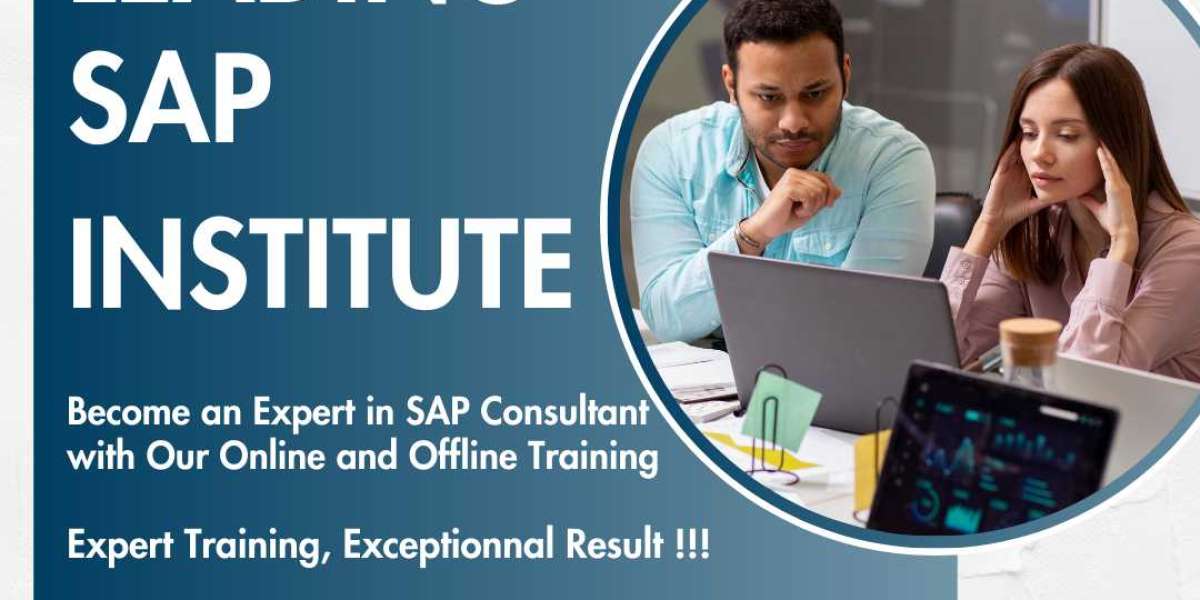As someone looking to build a career in SAP, you might be wondering: What exactly does the SAP course syllabus cover, and is it the best choice for me? With SAP being one of the most sought-after skills in today’s business world, understanding the structure of a SAP course in Mumbai is essential. This blog aims to break down the syllabus and guide you in deciding if it aligns with your career aspirations.
The best SAP course in Mumbai will offer a comprehensive syllabus that covers different SAP modules, preparing you to become proficient in this highly versatile and powerful ERP system. Let’s explore the various components that make up a typical SAP course syllabus.
Why Should You Opt for a SAP Course in Mumbai?
Before we dive into the details of the SAP course syllabus, it’s essential to ask why choosing a SAP course in Mumbai could be the right decision for you. Mumbai has become one of the most dynamic IT and business hubs in India, with growing demand for SAP professionals across various industries. A SAP course in Mumbai will not only give you technical knowledge but also provide practical skills in line with industry requirements.
Enrolling in the best SAP course in Mumbai means that you’re investing in a future filled with career growth and competitive job opportunities. But what makes this course truly valuable is its detailed syllabus, covering multiple SAP modules and ensuring hands-on experience with real-world business scenarios.
What Can You Expect from the SAP Course Syllabus?
The SAP course syllabus is structured in a way that ensures students acquire both foundational knowledge and specialized skills in specific SAP modules. Here’s an overview of what you can expect from the best SAP course in Mumbai:
- Introduction to SAP and ERP: The first section of the syllabus typically introduces you to the fundamentals of ERP (Enterprise Resource Planning) systems and SAP’s role in modern business environments. Understanding how SAP streamlines business processes and its importance in industries such as manufacturing, finance, and supply chain management is crucial for grasping its significance.
- SAP Navigation: Once you’re familiar with the basics, the syllabus moves on to SAP navigation. This part of the SAP course in Mumbai teaches you how to use SAP’s graphical user interface and its various components. You will learn how to navigate the software efficiently, understand the different transaction codes, and explore system layouts.
- SAP Modules: One of the key elements of the SAP course syllabus is learning the various SAP modules. Each module focuses on a different business function, and the best SAP course in Mumbai will offer a wide range of options, allowing you to choose the module that aligns with your career goals.
Some of the most popular modules you may cover include:
- SAP FICO (Financial Accounting and Controlling): This module is essential for professionals interested in finance and accounting. The syllabus covers topics such as general ledger, accounts payable, accounts receivable, asset accounting, and internal reporting.
- SAP MM (Materials Management): If you’re inclined toward supply chain management, this module is for you. It includes purchasing, inventory management, invoice verification, and material planning.
- SAP SD (Sales and Distribution): For those interested in sales, distribution, and order management, the SD module covers order processing, pricing, billing, and shipping.
- SAP HCM (Human Capital Management): This module is designed for professionals interested in HR. It includes employee administration, payroll, time management, and recruitment.
- SAP PP (Production Planning): Ideal for manufacturing professionals, this module focuses on planning production processes, including demand management, material requirements, and capacity planning.
- Business Processes: A vital part of the SAP course syllabus is learning how SAP integrates with different business processes. The best SAP course in Mumbai ensures that students not only understand how to use the software but also how to apply it to real-world business scenarios. For example, how does SAP help a company manage its financial data, or how does it optimize a supply chain? By mastering these processes, you’ll be better equipped to contribute to your future employer’s success.
- Hands-on Training: While the theoretical components of the SAP course syllabus are important, practical experience is what sets you apart in the job market. The best SAP course in Mumbai will include hands-on labs, live projects, and real-time case studies. This allows you to practice what you learn in simulated business environments, providing you with the confidence to work with SAP software in your job.
- Certification Preparation: If you’re aiming for SAP certification in Mumbai, the course syllabus will guide you through the certification exam preparation. The best SAP course in Mumbai will ensure that students are ready for the SAP certification process, which involves mastering specific SAP modules, completing assignments, and passing the required exams. This certification is globally recognized and boosts your employability in the SAP domain.
How Does the SAP Course Syllabus Prepare You for Placement?
One of the most appealing aspects of a SAP course in Mumbai with placement support is the clear pathway to a job after completing your certification. The SAP course syllabus doesn’t just focus on theoretical knowledge; it’s designed to make you job-ready by providing practical skills that companies value.
Here’s how the syllabus helps in securing placement:
- Comprehensive Understanding: By covering all the essential SAP modules, you’ll have a broad knowledge base that allows you to fit into various roles such as SAP consultant, analyst, or system administrator.
- Real-World Experience: Practical assignments, case studies, and hands-on training ensure that you’re familiar with how SAP works in actual business scenarios. This experience makes you more attractive to employers who prefer candidates with real-world skills.
- Mock Interviews and Resume Building: Many SAP courses in Mumbai with placement also include sessions on soft skills, resume building, and mock interviews. This prepares you not only for the technical challenges of the job but also for the recruitment process itself.
Conclusion: Is the SAP Course Syllabus Worth It?
In conclusion, if you’re serious about building a career in enterprise technology, then mastering the SAP course syllabus is crucial. A SAP course in Mumbai offers you the opportunity to gain in-demand skills, work on real-world projects, and secure a job through placement assistance. The wide range of SAP modules ensures that there’s a specialization for everyone, whether you’re interested in finance, supply chain, human resources, or sales.
When looking for the best SAP course in Mumbai, make sure the syllabus aligns with your career goals and includes hands-on training as well as placement support. With SAP skills being highly valued across industries, the knowledge you gain from this course can open doors to a wide range of job opportunities, both in India and globally.
So, is the SAP course syllabus the right fit for you? If you’re ready to invest in a future-proof career and become a sought-after SAP professional, the answer is yes! Explore your options today and start your journey toward SAP certification and a rewarding career







